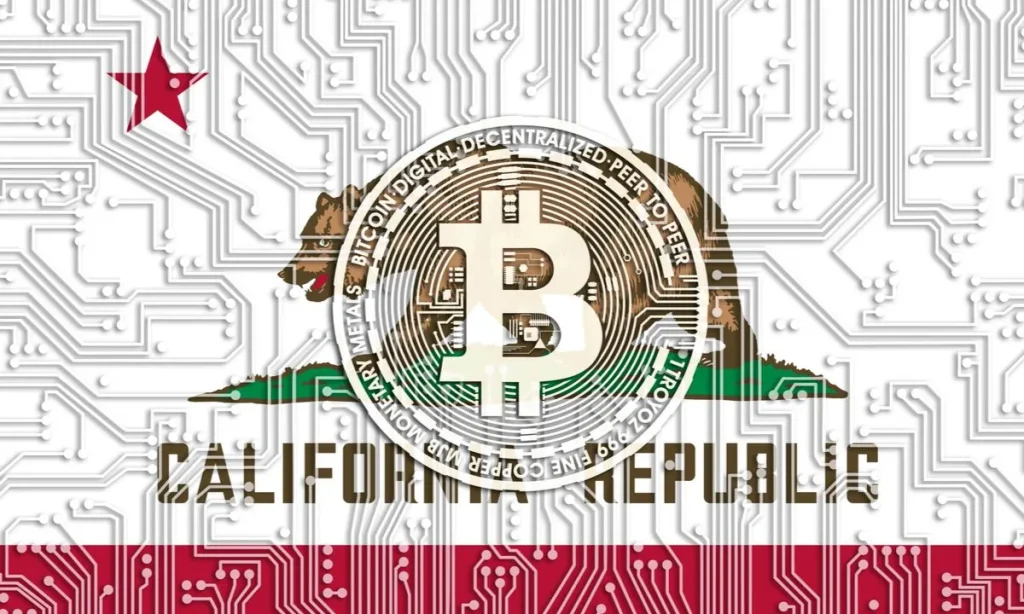- California Assembly Bill 1052, initially the Money Transmission Act, has been amended to enhance crypto investor protections, focusing on Bitcoin and digital assets.
- The bill enshrines self-custody rights, protecting nearly 40 million residents from discrimination for holding digital assets.
- The bill recognizes digital assets as valid payment methods. It also introduces ethics rules to prevent public officials from facing conflicts of interest in crypto transactions.
A California lawmaker has introduced key amendments to a proposed money transmission bill, reinforcing Bitcoin and crypto investor protections while solidifying self-custody rights for nearly 40 million residents in the state.
Assembly Bill 1052, originally introduced on Feb. 20, 2025, as the Money Transmission Act, underwent significant changes on March 28. Democratic Assemblymember Avelino Valencia, who also chairs the Banking and Finance Committee, revised the bill to incorporate crucial Bitcoin and crypto-related safeguards.
With the amendments, the bill is now renamed “Digital Assets,” shifting its focus toward fostering a crypto-friendly regulatory framework while ensuring users’ rights to hold and transact with digital assets.
The bill’s latest provisions enshrine self-custody rights, preventing discrimination against individuals or businesses holding digital assets. Dennis Porter, CEO of the Satoshi Action Fund, emphasized the national implications of this move.
“California often sets the national blueprint for policy, and if Bitcoin Rights passes here, it can pass anywhere,” Porter said in a March 30 statement.
“Once passed, this legislation will guarantee nearly 40 million Californians the right to self-custody their digital assets without fear of discrimination.”
We are proud to officially announce that ‘Bitcoin Rights’ has been introduced in the California Assembly by the Chair of Banking and Finance – Assemblyman Valencia.
— Satoshi Action Fund (@SatoshiActFund) March 29, 2025
Once passed, nearly 40 million Americans will have their right to self-custody protected!
The bill also creates… pic.twitter.com/zvLwCM46je
Beyond self-custody protections, the bill recognizes digital assets as a valid and legal form of payment in private transactions. It also explicitly prohibits public entities from imposing restrictions or taxes on cryptocurrencies based solely on their use as payment.
California AB 1052 Targets Crypto Conflicts of Interest
AB 1052 also introduces ethics regulations for public officials regarding crypto-related activities. The bill expands the Political Reform Act of 1974 to prohibit state officials from promoting, sponsoring, or transacting in digital assets if it results in a conflict of interest with their public duties.
“A public official shall not engage in any transaction or conduct related to a digital asset that creates a conflict of interest with their public duties,” the bill states. With AB 1052 now in the “desk process,” lawmakers have formally introduced the legislation and are awaiting its first reading.
According to BTC Maps data, 99 merchants in California currently accept Bitcoin payments, reflecting growing mainstream adoption in the state. Additionally, Ripple Labs, Solana Labs, and Kraken, some of the biggest names in the crypto industry, have established their headquarters in California.
The state is also reviewing a separate stablecoin-related bill, introduced on Feb. 2, 2025. This bill aims to establish clear regulations regarding collateral requirements, redemption processes, settlement mechanisms, and security audits for stablecoins.
A Broader Trend Toward Bitcoin Regulation
California is not alone in pushing for Bitcoin-friendly legislation. Bitcoin Law data reveals that 95 crypto-related bills or measures have been introduced across 35 U.S. states, with 36 Bitcoin reserve bills still under consideration.
Other states are already making bold moves. The Texas Senate passed a Bitcoin strategic reserve bill on March 6, and Kentucky Governor Andy Beshear signed a Bitcoin Rights bill into law on March 24.
At the federal level, President Donald Trump recently signed an executive order to establish a Strategic Bitcoin Reserve and a Digital Asset Stockpile. The government will fund both using crypto assets seized in criminal cases.
As the regulatory landscape rapidly evolves, California’s AB 1052 could set a precedent for state-level crypto protections, potentially influencing future federal policies on Bitcoin and digital asset ownership.
Related | Solana (SOL) Eyes Key Support Level Amid Market Recovery Bullish Sentiment Builds
How would you rate your experience?






